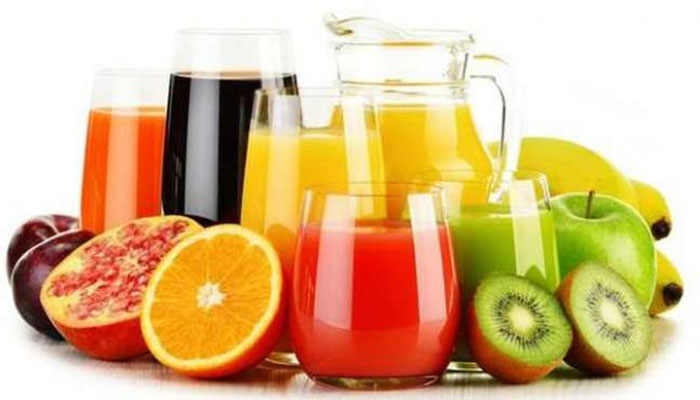TRENDING TAGS :
Don't Be Fooled: Fruit Juice Can Be Sneaky Sugar
Thinking fruit juice is a healthy alternative? Think again!
We all know fruits are good for us. Packed with vitamins, minerals, and fiber, they're a cornerstone of a healthy diet. But what about fruit juice? It seems like a convenient way to get your daily dose of fruity goodness, right? Well, not exactly. While fruit juice does contain some vitamins and minerals, it can also be surprisingly high in sugar.
The Hidden Sugar in Fruit Juice
The thing to remember is that fruit juice is essentially concentrated fruit. During the juicing process, the fiber, which is what helps you feel full and keeps your digestion healthy, is removed. What's left is a sugary liquid that can send your blood sugar levels spiking.
This sugar overload can have negative health consequences. It can contribute to weight gain, type 2 diabetes, and even heart disease.
How Much Sugar is Too Much?
The World Health Organization (WHO) recommends limiting your added sugar intake to no more than 10% of your daily calories. That's about 50 grams for someone who consumes a 2,000 calorie diet.
A single glass of fruit juice can easily contain 20-30 grams of sugar, which is already a significant chunk of your daily allowance.
Why Whole Fruit is the Champion
So, if fruit juice isn't the healthy alternative we might think, what should we reach for instead? The answer is simple: whole fruit!
Here's why whole fruit wins every time:
Fiber Powerhouse: Whole fruit provides essential fiber, which keeps you feeling full and aids digestion. This helps regulate blood sugar and prevents those energy crashes after a sugary drink.
Nutrient Packed: Along with vitamins and minerals, whole fruit offers a variety of health-promoting phytonutrients that may be lost or reduced during juicing.
Hydration Hero: Fruits like watermelon and oranges are naturally high in water content, helping you stay hydrated.
Making Smart Choices
While fruit juice isn't inherently bad, moderation is key. Here are some tips for incorporating fruit into your diet in a healthy way:
Focus on whole fruits: Aim for at least 2-3 servings of whole fruit per day.
Limit fruit juice intake: If you do enjoy fruit juice, stick to a small serving (around 1/2 cup) and dilute it with water to reduce the sugar content.
Make your own juice: Opt for freshly squeezed juice at home, where you can control the amount of fruit and add water for dilution.
Read labels carefully: Be aware of added sugars in commercially produced juices.
While fruit juice might seem like a healthy option, it's important to be mindful of its sugar content. Whole fruit, with its fiber and nutrient package, is always the better choice. So, the next time you're craving something fruity, grab a whole fruit instead and enjoy the natural sweetness and health benefits it offers!



